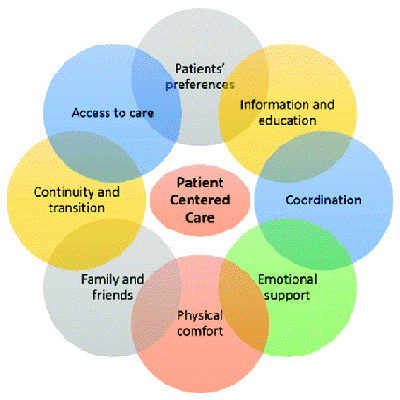Many conditions can lead to Heart Failure and associated risk factors can mean that there is a higher risk to develop heart failure. Heart Failure is dangerous, undetected, it has a major impact on quality of life and there is low awareness. How as society we can shift the perspective and start prioritising health?
Heart Failure is still poorly recognised and not well understood by both the general public and healthcare professionals.
Cardiovascular disease is the number one killer in the world and 64 million people globally are living with Heart Failure - around 30% of these people have no symptoms. If you would ask someone what they are afraid of, their answer would be: cancer, heights or being alone. It is shocking to know that 1 in 5 people will develop Heart Failure in their lifetime and still this topic is not highlighted enough for society to start prioritising their own health.
From the lack of awareness about recognising Heart Failure symptoms, to early diagnosis, access to care, treatment and, most importantly, support managing the Heart Failure. Globally, issues persist where there is a major underrepresentation in research and a multidisciplinary team approach to the disease as well as the patient, and most importantly no equal access to care and treatment globally. The question then is being raised as to how global organisations such as GHH, the international alliance of heart patient organisations, can really push the agenda forward so that there is a change in the system overall.
Patient organisations play a major role and have a lot of opportunities for impact. Through our practise, there are great examples of collaboration with different stakeholders such as: clinicians, clinical organisations, policy and decision makers, industry, academy, etc., which leads to better solutions and sustainable approaches on the issues on the national level. Patient organisations take the leader position here, as they are extremely powerful with their own patient community. The patient voice, the experience of actually living with Heart Failure and experiencing the challenging journey places the patient as the expert. Patient organisations are also leaders in initiating change such as impacting the policy change, actively participating in the health technology assessment processes and bringing the patient voice to the fore. The healthcare systems say they focus on the patients and their wellbeing, but unfortunately the reality is little different. We see more and more stakeholders understanding the value of the patient and have a patient-centred approach.

With this approach, patients are the most important part in care related processes and decisions. This approach is slowly being followed globally in the healthcare systems and stakeholder views.
Mental and emotional health burden is another unspoken reality that people with Heart Failure raise awareness of, but it is very often dismissed in care by multidisciplinary teams. Up to 60% of Heart Failure patients are being diagnosed with anxiety or depression, and this number is higher in females than in males. Managing not only Heart Failure, but also depression is extremely difficult for patients. Mental health specialists are rarely available to support Heart Failure patients, but this support is available for cancer patients, which we see as a great example of where cardiovascular disease care in healthcare systems can potentially be in the future.
Women also have challenges with treatment options, such the devices, which are more suitable for men. Women also face another major issues from Heart Failure like medication side effects, hormones, pregnancy, delivery, menopause and even how symptoms differ for different races. There is a major underrepresentation of female inclusion in clinical trials, which is caused by lack of information about the clinical trials in general, the risks, responsibilities, and the benefits.
As someone who was diagnosed with Heart Failure right before her 30th birthday and survived, I can say that it is extremely challenging to hear the diagnosis unexpectedly and not knowing if I would be able to wake up the next morning. The symptoms are normally confusing and quite difficult to explain. Clinicians tend to opt-out other diseases first when diagnosing Heart Failure. Shortness of breath can be mixed with pulmonary issues, a cough to a cold, weight gain with food intake or lack of rest, and blood-pressure changes might not even be felt, as an example. This is why preventative and regular check-ups is and should be the priority for every individual. We are so busy with our day-to-day life, health is being pushed to the back of our priority list. This should change and change immediately. I was there and I know.
I know how difficult it is to accept the illness, accept that your body is not healthy and is not capable to function. I know as well how excruciating difficult it is going through the Heart Failure journey and doing it all by yourself. I know that knowledge is power: knowing your symptoms, knowing your numbers, knowing your treatment plan and know when to seek help. I know how difficult it is mentally, to understand that you will probably die sooner than you expected and there are so many things that have been left undone yet. I know how it is important to enjoy life to the fullest and doing that every day, honestly and truly. And I know how much the society shift needs to happen, so there are systematic changes overall globally. Working together is key, and only when all stakeholders are working together, there can be success and improved outcomes for the people living with Heart Failure and their caregivers.